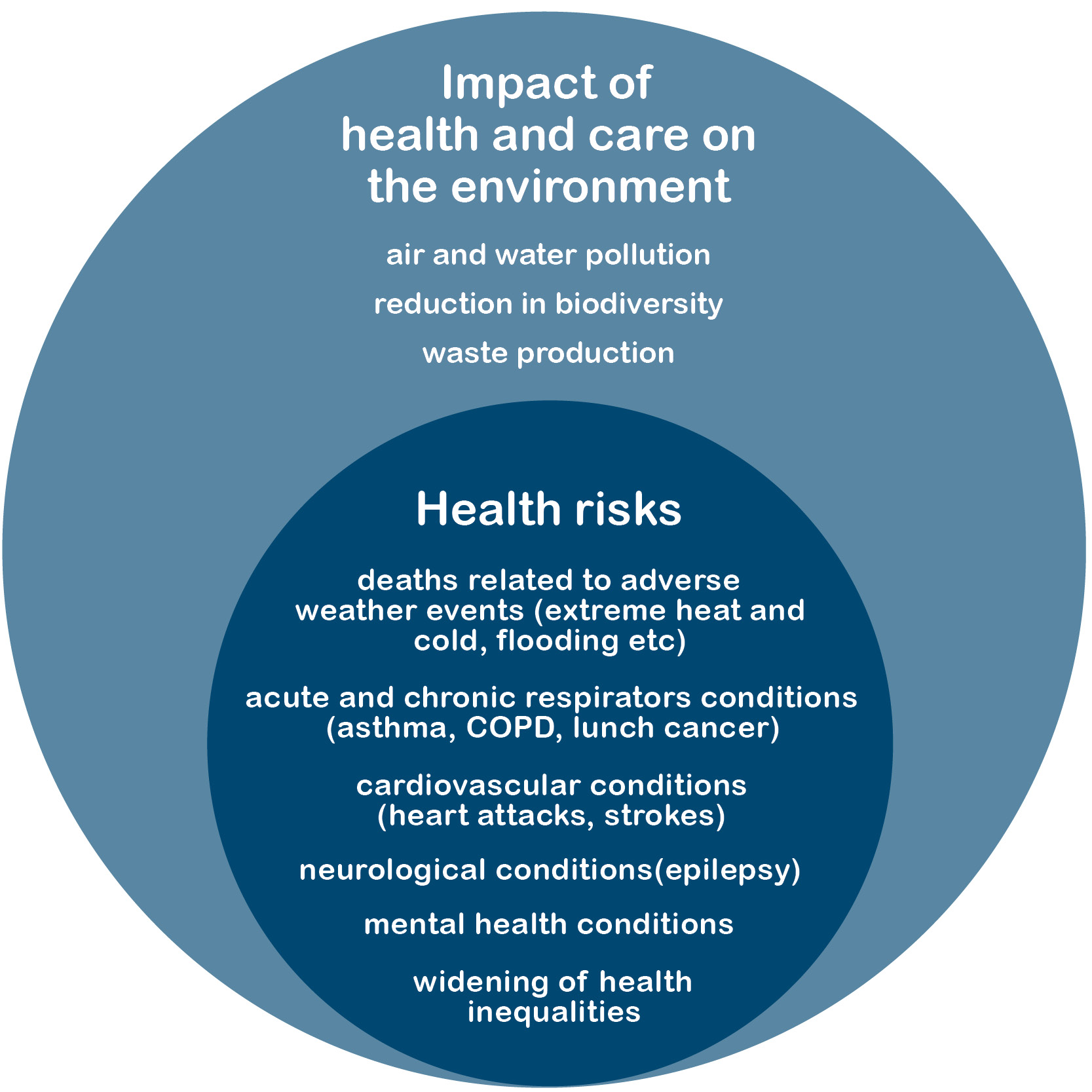Information for current and future registrants who wish to learn more about sustainability in health and care
The information and resources on this page will help you familiarise yourself with the relationship between sustainability, public protection and health and care, demystify sustainability as a concept, and understand the steps you can take to make your own practice more sustainable, if you wish to do so.
Background
In 2022, during our review of our standards of conduct, performance and ethics, we asked whether improving sustainability in health and care practice should be a part of the standards, and if so, what ought to be included.
A majority of respondents (56%) replied that they think sustainability should be a part of our standards. However, 19% replied ‘maybe’ and 26% replied ‘no’.
It was not clear from the consultation responses whether the standards of conduct, performance and ethics are the best or only vehicle to introduce standards relating to sustainability in health and care. We have therefore considered the relationship that environmental sustainability has to our other standards and our other registrant-focused content. We have produced the materials in this section as a result.
Environmental sustainability, climate change and health and care
The health of the planet is inextricably linked to human health and wellbeing. A healthy planet provides us with our most basic needs: fertile land for food production, safe water to drink and clean air to breathe.
According to the World Health Organisation (WHO), sustainability in health and care is a health system that improves, maintains or restores health, while minimizing negative impacts on the environment and leveraging opportunities to restore and improve it, to the benefit of the health and well-being of current and future generations.
Key facts:
- The UK health and care system contributes around 4% of carbon emissions
- Reaching UK Paris Climate Change Agreement ambitions could see over 5,700 lives saved every year from improved air quality, 38,000 lives saved every year from a more physically active population and over 100,000 lives saved every year from healthier diets
These are outlined in the NHS report Delivering a NetZero NHS

Sustainability commitments in UK healthcare
The health services of all the UK nations have committed to achieving net zero targets. There is now UK government guidance for health professionals to act on the climate crisis in their professional practice.
The Health and Care Act 2022 mandated that NHS England must contribute to net zero commitments. This Act introduced statutory emissions and environmental targets, with new duties placed on NHS England, all trusts, foundation trusts and integrated care boards.
This means that many HCPC registrants – especially those working in the NHS – will play a key role in delivering net zero targets.
Resources and online learning
Some key resources for building your understanding of environmental sustainability in health and care:
- NHS England's 2022 report Delivering a net zero NHS
- UNFCC's resources explaining the Paris Agreement
- WHO's 2017 publication Environmentally sustainable health systems
- NHS England’s Greener Allied Health Professional Hub
- NHS England’s Greener NHS information pages
We recommend the following online learning modules:
- Building a Net Zero NHS – The Centre for Sustainable Healthcare (CSH)
For health and care professionals working in the NHS, there is a free module in the NHS's Environmentally Sustainable Healthcare programme called Building a Net Zero NHS. The module introduces learners to the 'Net Zero NHS' plan and case studies which demonstrate how clinical practices can reduce carbon, costs and waste, and improve care quality. It is available on the eLearning for Healthcare (elfh) platform and via all NHS Trusts’ electronic staff record. Greener NHS recommends this module for all 1.4 million NHS staff. It takes approximately 30 minutes to complete with lots of signposting to additional resources.
Access the module - The All Our Health framework
The All Our Health framework, which supports health and care professionals to embed prevention within their day-to-day practice, has some free bite-sized sessions. We recommend two of their modules, Air Pollution and Climate change. These sessions bring together key evidence and data with signposting to trusted resources to help prevent illness, protect health and promote wellbeing.
Access the sessions - RCGP net zero learning hub
The Royal College of General Practitioners (RCGP)'s hub is free to access for any health and care professional including non-RCGP members. Their modules are especially helpful for anyone working in primary care, general practice and or involved in the design and delivery of asthma and respiratory care. They have three relevant modules: Introduction to sustainable healthcare, High quality and low carbon respiratory care, and Understanding non-clinical carbon and general practice, each taking 30 minutes to complete.
Together they cover the carbon footprint of primary care and the short and long-term opportunities to reduce our emissions, how we can improve asthma outcomes whilst reducing the carbon footprint of inhaler prescribing and how to identify emission hotspots and the actions needed to reduce non-clinical carbon emissions.
View the modules
